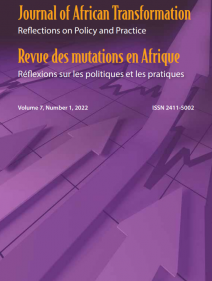The continent of Africa stands at a critical juncture. Almost 70 years after the end of colonial rule, the continent struggles to break the shackles of poverty and underdevelopment. More important, the task of building an inclusive and democratic society remains a work in progress, and often, democratic reversals have become a common phenomenon. At the global level, the continent plays a marginal role in shaping the rules governing international economic relations. To the contrary, bad rules, unjust trade agreements, conditional aid, and debt structures are the means by which African development is regulated. As a result, the ability of African countries to chart their own independent development path is severely restricted. Such externally imposed policies have produced multiple black holes of social exclusion and pockets of slums, and made disabled nation-States more accountable to external forces than to their own citizens.
Share this:
Rethinking African Development in the 21st Century
Release Date:
4 January, 2023
© United Nations Economic Commission for Africa

